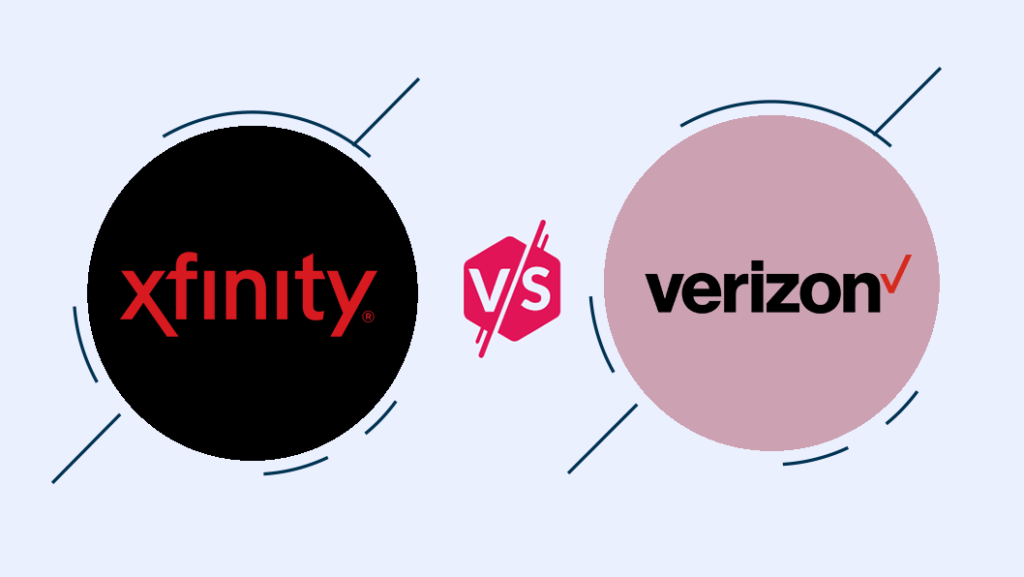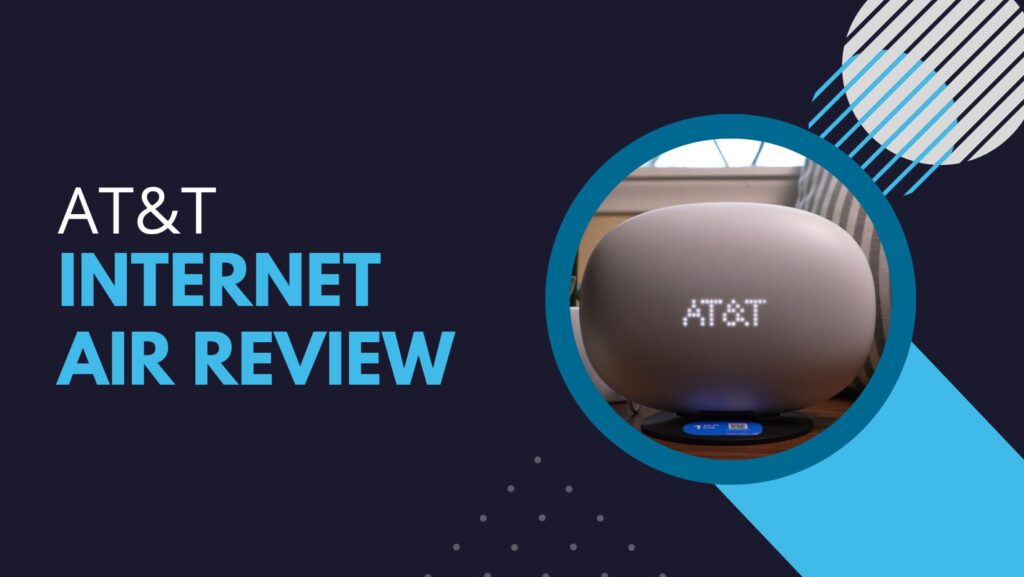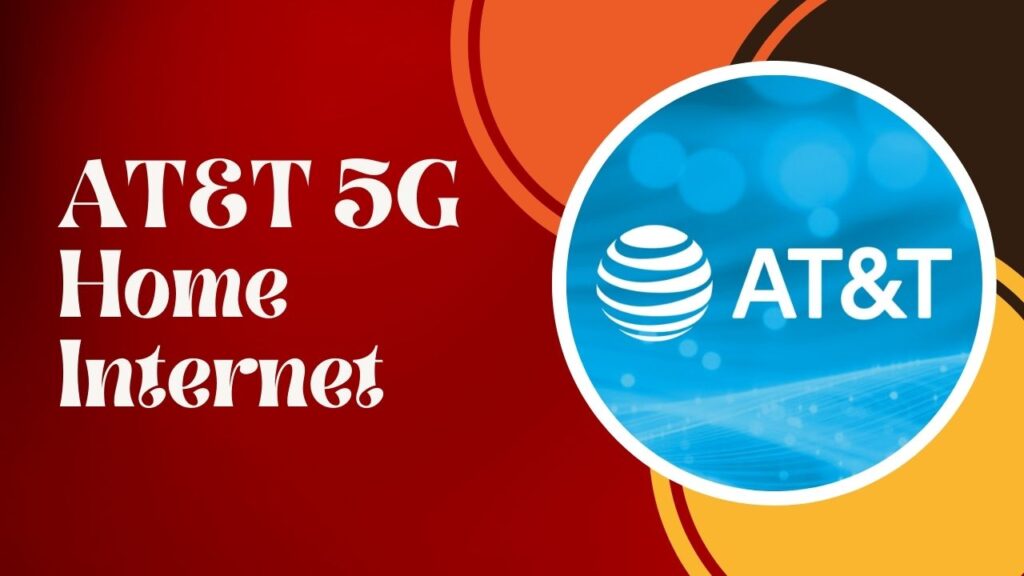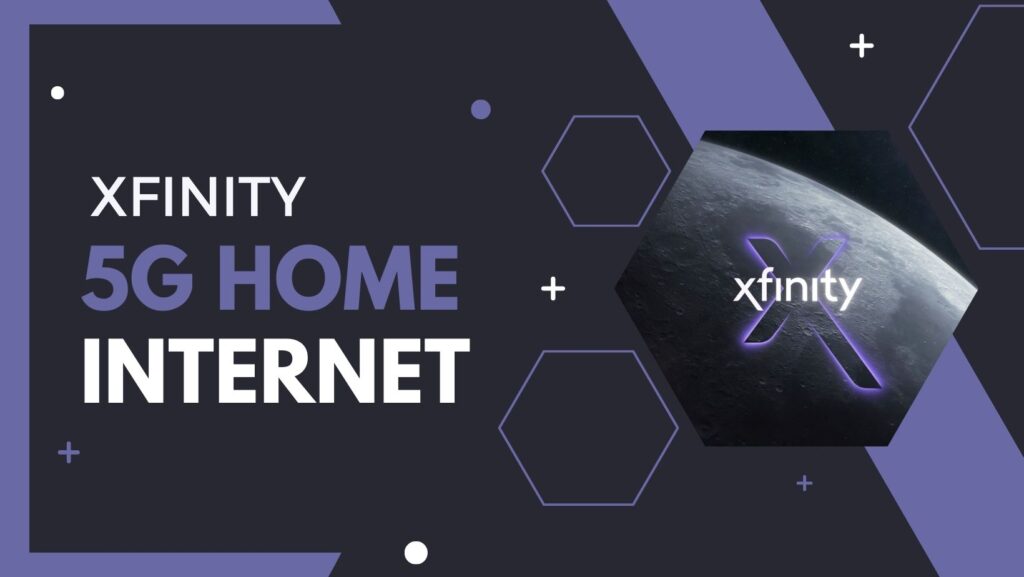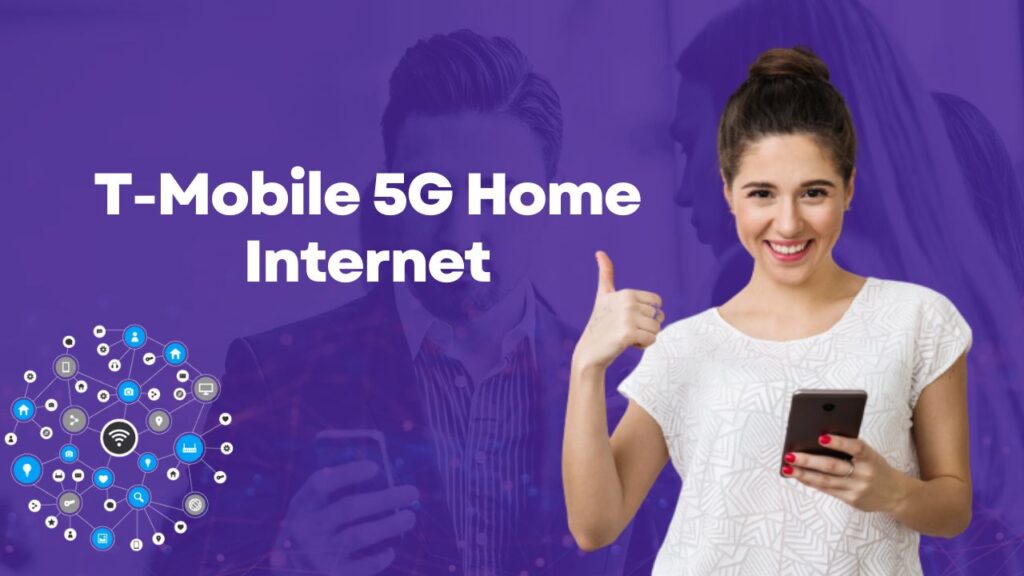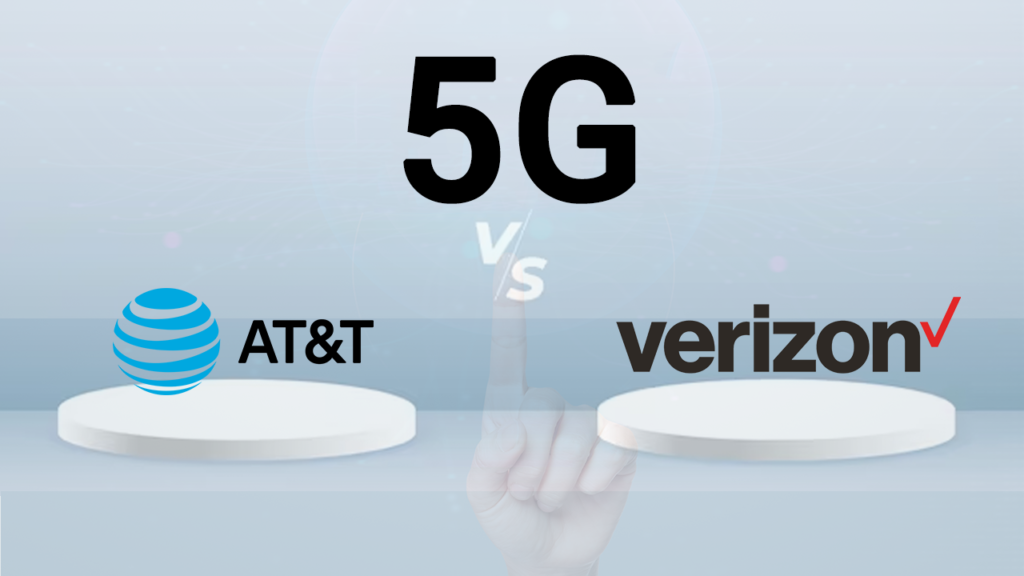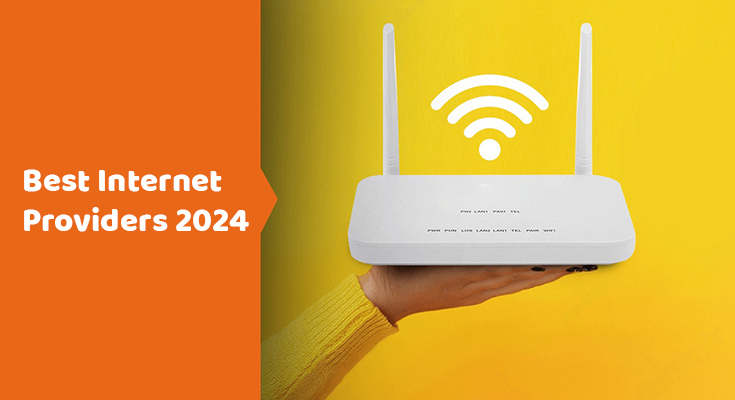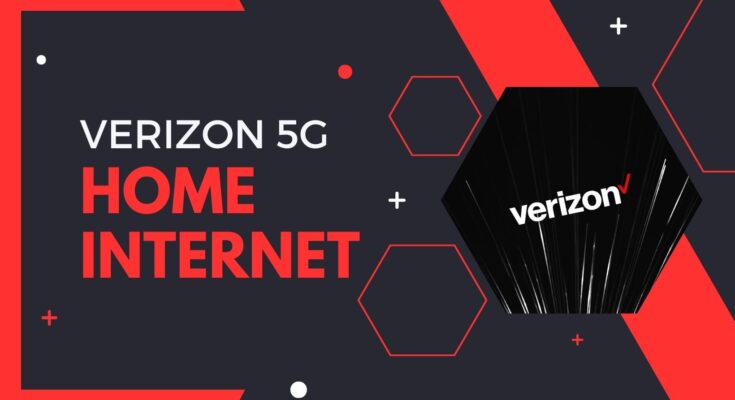The evolution of internet technology has taken another leap forward with the introduction of Verizon 5G Home Internet a few years ago. Since then, its availability has surged, reaching approximately 900 cities with the unveiling of the 5G Ultra Wideband network. This innovation significantly expands Verizon’s broadband reach, offering an alternative to traditional wired connections. You can also choose and compare the perfect 5G Home Internet Plans with one of the leading internet providers i.e., Club HDTV. This article will delve into everything you need to know about Verizon 5G Home Internet, from its availability and pricing to its competition and potential perks.
About Verizon 5G Home Internet
Verizon Internet offers high-speed fixed wireless connectivity with two options – 5G Home and 5G Home Plus, complemented by a 4G LTE alternative. With speeds ranging from 85 to 1,000 Mbps, users can choose plans tailored to their needs. Notably, the service boasts no annual contracts, extra fees, data overages, or equipment charges. The convenience extends to self-installation, backed by 30 days of support. All-inclusive advertised prices cover taxes and additional fees, ensuring transparency.
For those without 5G Home Internet availability, a 4G LTE plan starts as low as $35/month. The key strengths lie in the absence of contracts or data caps, a price guarantee for up to 5 years, the inclusion of a Wi-Fi 6 router, and potential savings through bundling with Verizon mobile services. However, users should consider limited availability in approximately 900 cities and the potential for varied speeds based on coverage.
Verizon 5G Home Internet Availability
Verizon 5G Home Internet is making strides in availability, primarily focusing on major metro regions where 5G infrastructure development is advanced. The deployment of 5G towers is faster than wiring entire regions for fiber, making it a potentially quicker solution for underserved areas. However, availability is contingent on proximity to Verizon’s 5G cell towers and a strong, steady signal. Users interested in the service can check availability through the map.

Verizon 5G Pricing Plans
Verizon simplifies its pricing structure with two options: a two-year price guarantee at $50 per month or a three-year price lock at $70 per month for Verizon 5G Home Internet. These prices include all taxes and fees, with additional discounts available for those with qualifying Verizon 5G mobile plans. Speeds vary based on location, with average download speeds ranging from 70 to 300 megabits per second. In select areas, speeds can reach as high as 1,000Mbps. The table below summarizes Verizon’s pricing plans.
Verizon 5G home vs. Verizon 5G Home Plus
| Internet Plan | Maximum Speed | Monthly Cost | Equipment Fee | Data Cap | Contract |
|---|---|---|---|---|---|
| Verizon 5G Home | Download Speed – 50 to 300 MbpsUpload Speed – 5 to 20 Mbps | $50/month ($35 with qualifying Verizon 5G mobile plans) | None | None | None |
| Verizon 5G Home Plus | Download Speed – 85 to 1000 MbpsUpload Speed – 10 to 75 Mbps | $70/month ($45 with qualifying Verizon 5G mobile plans) | None | None | None |
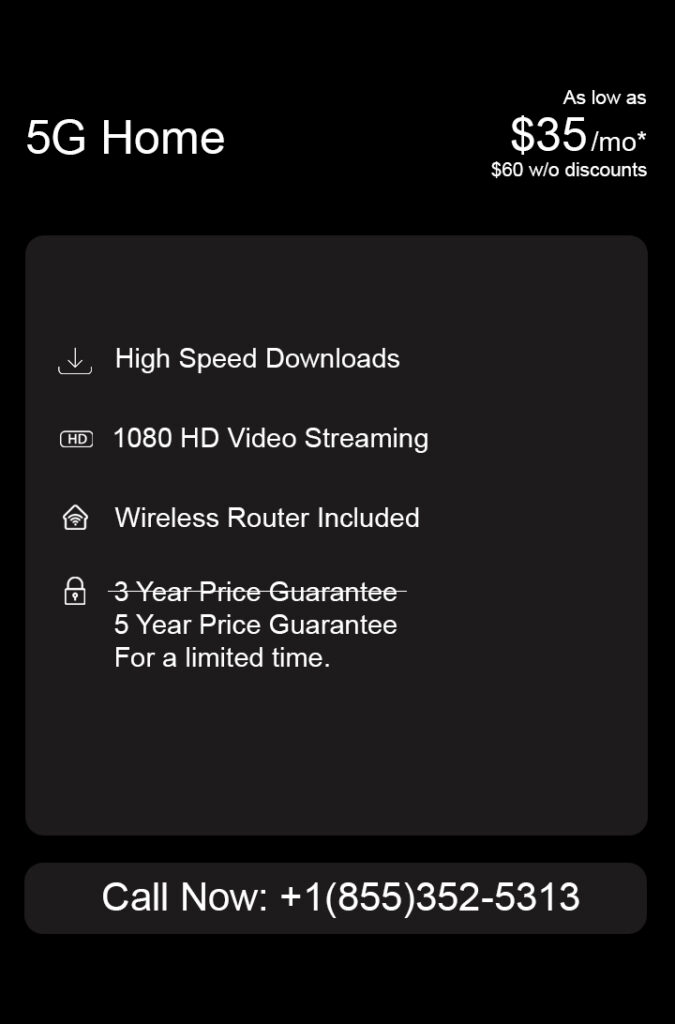
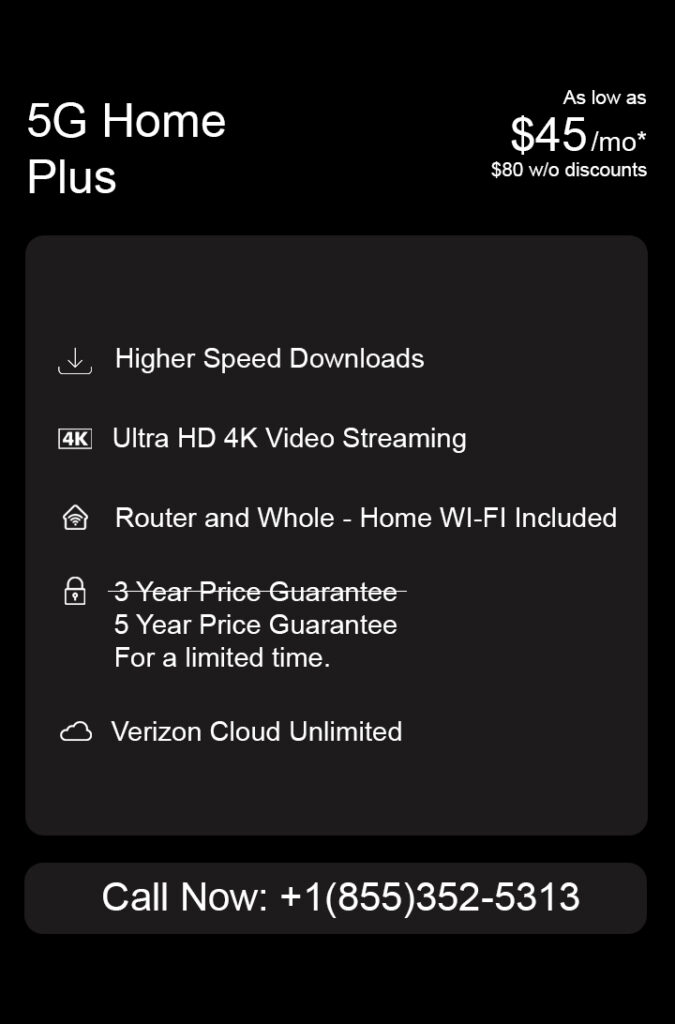
Comparing Speeds
Verizon’s 5G Home Internet outpaces its 4G LTE counterpart, with download speeds ranging from 25-50Mbps for 4G LTE compared to 70-300Mbps for 5G. The millimeter-wave technology of 5G enables gigabit speeds in favorable conditions, but its range is limited. Verizon combines mid- and low-band signals for better coverage, resulting in varying speeds depending on the location.
No Contracts or Hidden Fees
Verizon distinguishes itself with transparent terms, including no service contracts, early termination fees, or data caps. The monthly rate incorporates all taxes and fees, eliminating the need for additional equipment fees commonly found with other providers. This straightforward approach aligns with industry trends, appealing to customers seeking simplicity and reliability.
Verizon vs Competitors
In the 5G home internet arena, Verizon faces competition from providers like T-Mobile, At&t and Starry. While T-Mobile offers a mix of 5G and 4G LTE signals at a slightly lower price, Starry stands out with impressive download speeds of 200Mbps and upload speeds of 100Mbps for $50 per month. Verizon’s coverage map targets 40 million households with a goal of reaching 50 million by the next 2 years, emphasizing its commitment to expansion.
Verizon 5G Home Internet vs Other Competitors
| Internet Plan | Starting Cost | Download Speed Range | Data Caps |
|---|---|---|---|
| Verizon 5G Home Internet | $35/month | 85 to 300 Mbps | No |
| Verizon 5G Home Plus | $45/month | 300 to 1000 Mbps | No |
| T-Mobile 5G Home Internet | $50/month | Up to 182 Mbps | No |
| Starry 5G Home Internet | $50/month | Up to 200 Mbps | No |
| AT&T 5G Home Internet | $55/month | Up to 40 to 140 Mbps | No |
Bundling Discounts
Verizon sweetens the deal for existing mobile customers, offering additional discounts ranging from $15 to $25 off their monthly bill when combining their cellphone plan with Verizon 5G Home Internet. This incentive aims to attract customers and create a seamless experience across mobile and home internet services.
Perks and Promotions
In an effort to entice users to switch, Verizon covers early termination fees (up to $500) for those transitioning from other providers. New customers benefit from a 30-day satisfaction guarantee, providing a full refund if dissatisfied with the service. Additionally, Verizon 5G Home Plus customers receive a choice between a HomePod valued at $300 or a $200 Verizon gift card.
Conclusion
Verizon 5G Home Internet presents a compelling option for users seeking high-speed internet without the constraints of traditional wired connections. With competitive pricing, impressive speeds, and a commitment to customer satisfaction, Verizon is positioning itself as a key player in the 5G home internet market. As the infrastructure continues to expand, the service’s availability may reach more households, potentially reshaping the landscape of home internet services.
Related Post:-


